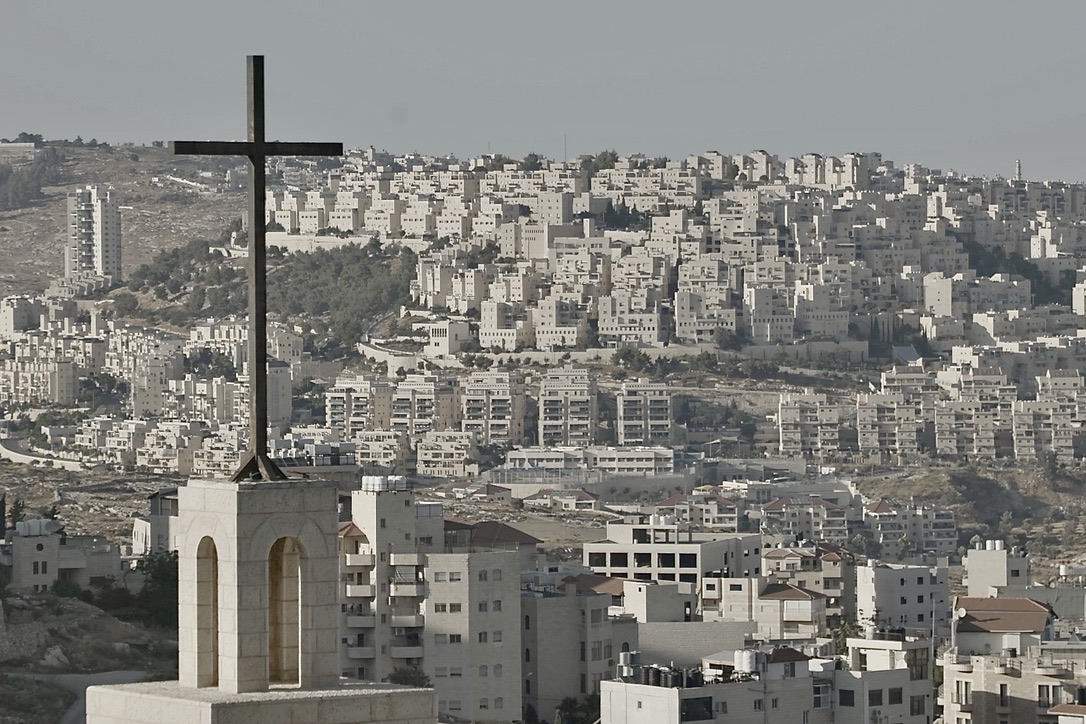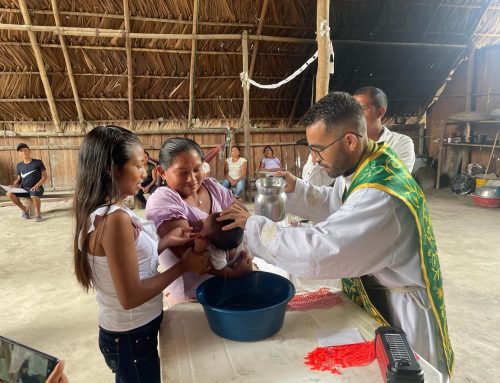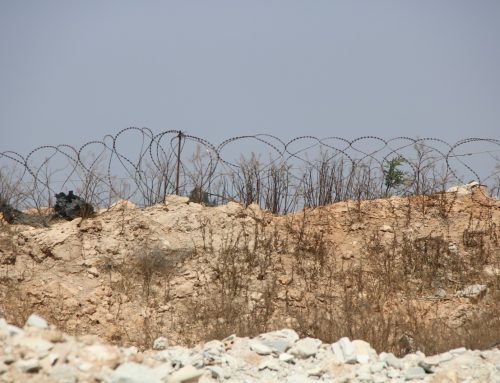With the world’s eyes on Gaza, few are aware that the Palestinians in the West Bank are also suffering the social and economic effects of the war in the Holy Land. Aid to the Church in Need has been accompanying Christians in the Holy Land since the very beginning of the war. A first aid package was approved for use between October and December, and now a second one has been approved for projects from January to April. ACN’s director of projects, Marco Mencaglia, explains why this is, and what the organisation is doing to help.
The war in the Holy Land is focused on Gaza. What is the situation for Palestinians, and Christians in particular, in places like the West Bank and Jerusalem?
It is true that the current fighting is taking place especially in Gaza, but unfortunately the effects of the war are being felt all over the region, and Christians, who are a minority but still a significant community – around 45,000 in the West Bank and 10,000 in East Jerusalem – are being affected in a very direct way.
Most of the Christians living in the West Bank, or in East Jerusalem, work in the tourism sector. Tourism is, of course, a major industry in the Holy Land, and many Christians make a living as tour guides, hotel workers, shop owners or personnel, and of course craftsmen, producing religious items that pilgrims buy when they visit.
But with the outbreak of the war all tourism has come to a standstill. As a result, a major part of the Christian population is out of work, and has lost all sources of income.
Then there are also several hundred Christian skilled and unskilled workers who used to travel into Israel every day to work there. With the borders closed down, this has now become impossible as well. These people are not being bombed, but nonetheless, their livelihoods are at risk.
What sort of numbers are we talking about?
According to our partners on the ground, at thousands of Christians lost their jobs due to the paralysis of the tourism sector. These include over 1,600 hotel employees; over 1,200 craftsmen from the workshops that supplied the souvenir shops; around 900 employees of the souvenir shops themselves; close to 300 tour guides, and about 500 restaurant employees. In many cases, these people were the breadwinners in their families, so it is not just one person who has lost his or her income, but maybe 4, 5 or 6.
What is ACN doing to help?
An easy solution would be to dole out money to families facing economic hardship, but that cannot work as a long-term solution. In less than two decades, this is at least the third time these communities go through this situation. In 2006, because of the war between Israel and Hezbollah; more recently, during the Covid Pandemic, and now because of the war in Gaza. What is more, there is no indication that the war is coming to an end, and that tourists will begin to return to the Holy Land.
Fortunately, during the pandemic, our main partner on the ground, the Latin Patriarchate of Jerusalem, already began projects aimed at building skills and foster employment, to make the community as a whole more resilient to extreme situations. This is an experience that we can benefit from.
For example, the Catholic Church runs a vast network of schools, homes for the elderly, and other institutions. Naturally, these require constant maintenance and servicing. Part of the project that ACN will be funding from January onwards involves training young Christians in technical trades so that they can then work for the Christian institutions, or elsewhere, and earn a living.
We will also be helping to train people to start their own businesses, or to invest in skills that allow them to work remotely, so that they are not so dependent on the political and security situation.
Rather than give them money, we are helping to provide them with skills and a means to earn a living. This is much better in the long run, as it is what helps keep communities anchored in their homes, and dissuades them from emigrating.
But will ACN also be providing more immediate aid?
Yes. We understand that these are medium to long-term projects, but that some degree of immediate aid is also necessary. We have been doing so since the beginning of the war, and we will keep providing some subsidies in the form of food coupons for families, and grants for some of the small businesses that, with some help, can still operate in this environment, and therefore can continue to pay their employees’ salaries. We are also helping to provide medical support to people with chronic diseases, who are facing a particularly difficult period, and grants to school and university students, so that they can continue to pursue their educations. Finally, in some cases we are helping to cover rent costs, so that families can continue to live in their homes, and not be evicted. This is particularly important in Jerusalem, where real-estate costs are very high, and if Christians are evicted, they will find it very difficult to remain in the city.
How much support are we talking about?
From the beginning of this war, we have told our partners on the ground in the Holy Land that we will not abandon them, neither in terms of material help, or in terms of spiritual aid, and we intend to fulfil that promise. We already sent emergency aid, and these most recent projects that we have approved were for Gaza and also for the West Bank and Jerusalem. And we will be attentive to the needs of the local Church for other emergencies that may occur during 2024.




